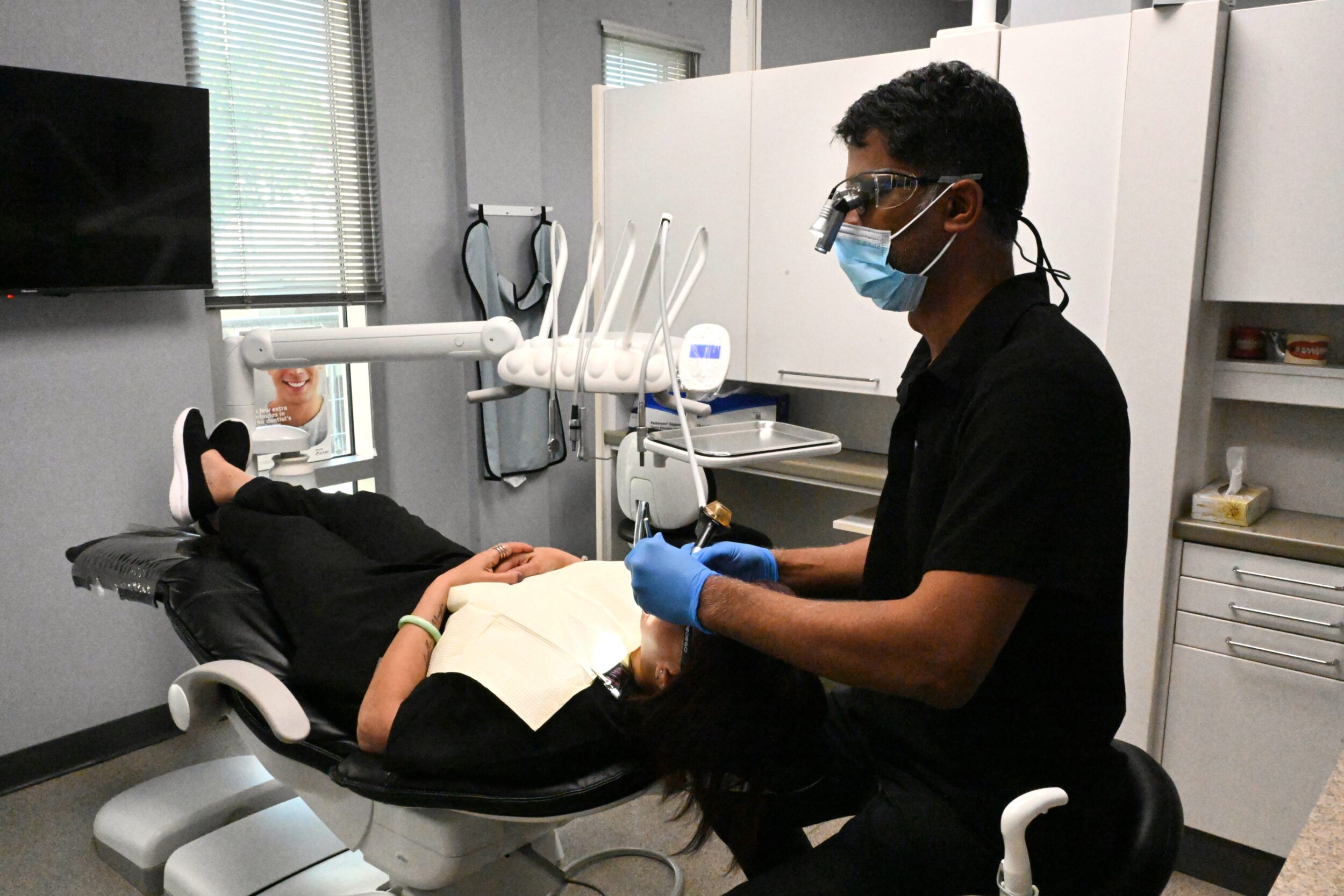Baby Tottle Tooth Decay in Calgary, AB
It is extremely important to maintain the health of primary (baby) teeth. Baby teeth will eventually be replaced, but in the meantime they perform several crucial functions.
Enunciation and speech production are assisted by baby teeth, as well as chewing food correctly, maintaining space in the jaw for adult teeth, and preventing the tongue from protruding abnormally. Whenever baby teeth are lost prematurely due to decay or trauma, adjacent teeth shift to fill the gap. The consequences of this phenomenon can include impacted adult teeth, years of orthodontic treatment, and a poor aesthetic result.

It is important to note that babies are at risk of tooth decay as soon as their first primary tooth emerges – usually around six months of age. Around twelve months of age, the American Academy of Pediatric Dentistry (AAPD) recommends a “well baby check up” with a pediatric dentist.
How does baby bottle tooth decay happen?
“Baby bottle tooth decay” refers to early childhood caries (cavities) in infants and toddlers. Teeth decay caused by baby bottles may affect any or all of the teeth, but is most prevalent in the front teeth on the upper jaw.
The pediatric dentist may not be able to save the affected tooth if baby bottle tooth decay becomes too severe. To prevent misalignment of the remaining teeth, the damaged tooth is removed and a space maintainer is placed.
A good homecare routine and regular dental checkups can completely prevent baby bottle tooth decay.
What is the cause of baby bottle tooth decay?
Tooth decay is caused by acid-producing bacteria in the oral cavity. In the beginning, these bacteria may be transmitted from mother to baby through saliva. Whenever parents share a spoon with the baby or attempt to clean a pacifier with their mouths, the parental bacteria infect the baby’s mouth.
Sweetened liquids are the most common cause of baby bottle tooth decay. Breast milk, baby formula, juice, and sweetened water are just a few of the liquids that a parent might fill a baby bottle with.
Particularly when sweetened liquids are consumed during naps or at night, they remain in the mouth for an extended period of time. Throughout the mouth, oral bacteria feed on sugars and emit harmful acids as a result. Tooth enamel is worn away by these acids. As a result, children suffer from painful cavities and tooth decay.
Infants who do not receive an adequate amount of fluoride are at a greater risk of developing tooth decay. In addition to protecting tooth enamel, fluoride also promotes mineral reuptake while reducing mineral loss. A pediatric dentist can determine whether an infant requires fluoride supplements or is at high risk for baby bottle tooth decay by completing a series of questionnaires and examinations.
How can I prevent baby bottle tooth decay at home?
A committed parent can completely prevent baby bottle tooth decay. By scheduling regular dental appointments and following these guidelines, you can ensure that your child’s smile remains healthy, bright, and beautiful:
- You should avoid transmitting bacteria to your child through saliva exchange. Clean pacifiers and toys, and use a clean spoon for each person eating.
- Use a clean washcloth to clean gums after every feeding.
- Brush your teeth with an ADA-approved toothpaste and an appropriate toothbrush. Under two-year-olds should use fluoride-free toothpaste.
- When the child has mastered the art of “spitting out” excess toothpaste, use a pea-sized amount of ADA-approved fluoridated toothpaste. Although fluoride is important for the health of the teeth, too much consumption can lead to fluorosis.
- Sugary drinks should not be placed in baby bottles or sippy cups. These containers should only be filled with water, breast milk, or formula. Once the child reaches the age of twelve months, encourage him or her to use a regular cup rather than a sippy cup.
- It is not recommended to dip pacifiers in sweet liquids (honey, etc.).
- It is important to review your child’s eating habits. Sugar-filled snacks should be eliminated and a healthy, nutritious diet should be encouraged.
- You should not allow your child to take a liquid-filled bottle to bed. In the event that the child insists, fill the bottle with water rather than a sugary beverage.
- Make sure your child’s teeth are clean until he or she reaches the age of seven. Children are often unable to reach certain parts of their mouth before this time.
- Consult your child’s pediatric dentist about fluoride levels.
Consult your pediatric dentist if you have questions or concerns about baby bottle tooth decay.